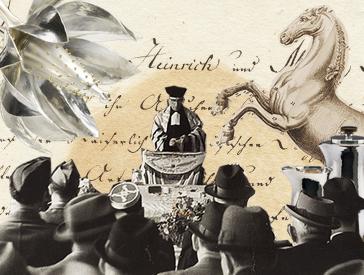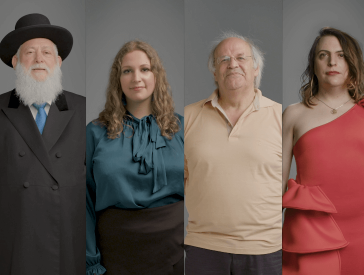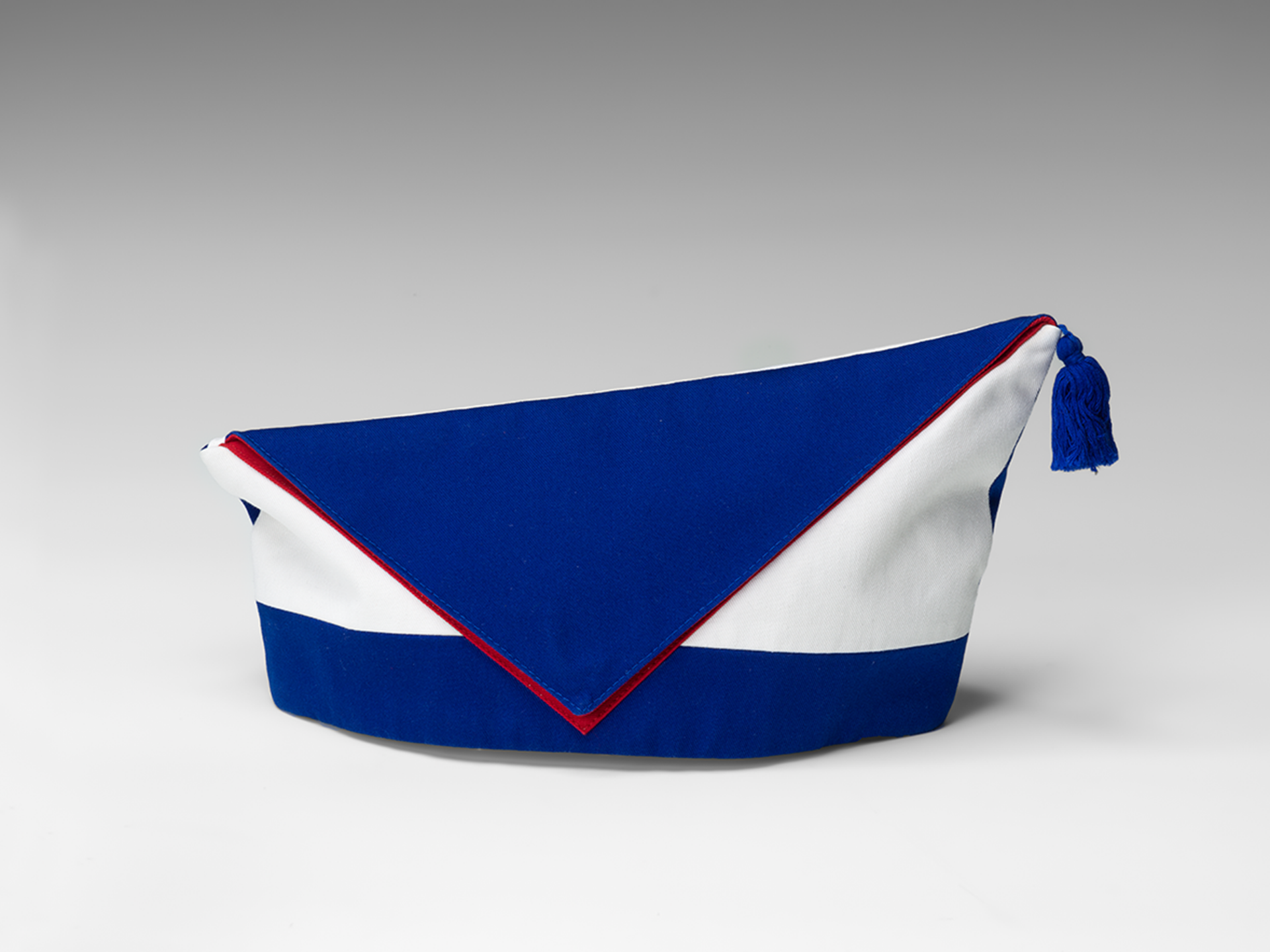
Collecting the present
Krätzchen Carnival Cap (Kölsche Kippa Köpp Carnival Society), gift of Aaron Knappstein, 2019
Documenting and preserving Jewish history and culture up to the present day is part of our mission. And this encompasses all of Germany, beyond the borders of Berlin. One advantage of contemporary collecting is that we can directly record the stories and narratives associated with objects. At the same time, it’s not always easy to judge an object’s future relevance. When a number of promising attributes come together in an object – like a fascinating backstory, striking visual qualities, and rich historical and thematic references – we make a point of actively approaching possible donors.
A Red-white-and-blue Carnival Cap
In 2019 we heard about a red-white-and-blue carnival cap, also known as a Krätzchen, from Cologne. We contacted the Kölsche Kippa Köpp Carnival Society, which produced the cap. In response, chairman Aaron Knappstein gave us his own carnival cap as a gift.
“Just as important as the remembrance of the Shoah is the representation of Jewish life in Germany,” he said. “And what could better represent Jewish life, and the joy of Jewish life, than our Krätzchen?”
What is a Kippah?
Kippah (Hebrew for cap), plural: kippot; ritual skullcap worn by Jewish men
Local and Jewish – a Carnival Cap in the Colors of Cologne and Israel
Since 2017, there has once again been a Jewish carnival association in Cologne. Today, around sixty carnival goers are involved in the Kölsche Kippa Köpp: Cologne residents, newcomers, men and women, Jews and non-Jews from different generations. The Krätzchen is what distinguishes them from other groups. In 2018, founding member Dieter Beumling designed the headpiece. Since then, Cologne tailor Thomas Wien-Pegelow has been crafting the individual caps.
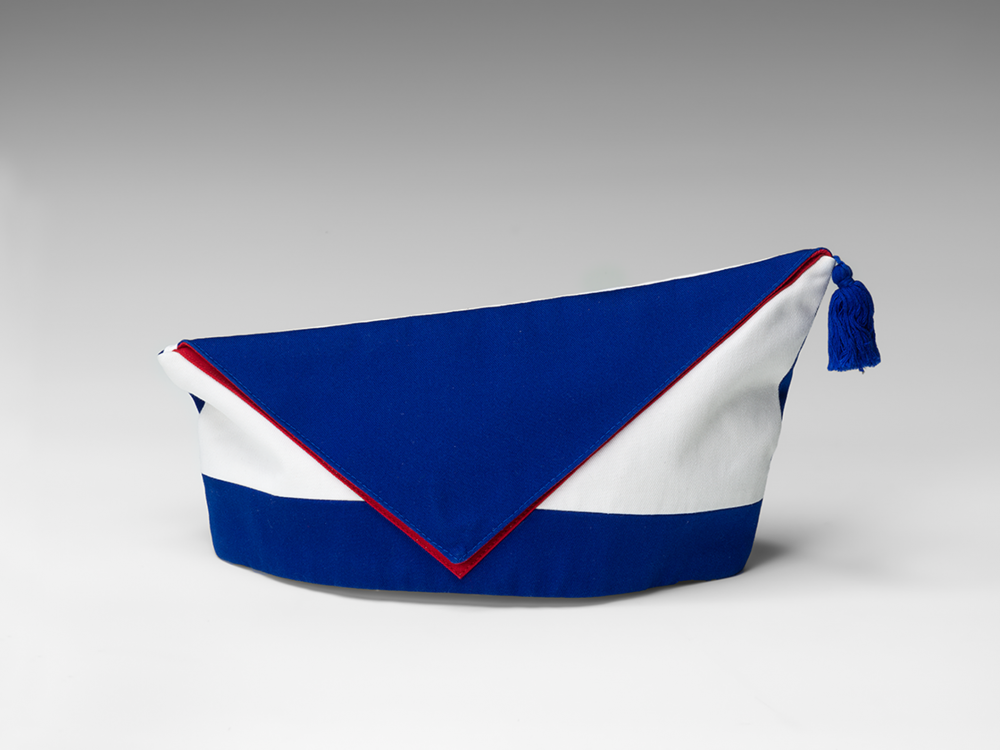
Krätzchen Carnival Cap (Kölsche Kippa Köpp Carnival Society); Jewish Museum Berlin, gift of Aaron Knappstein, photo: Roman März
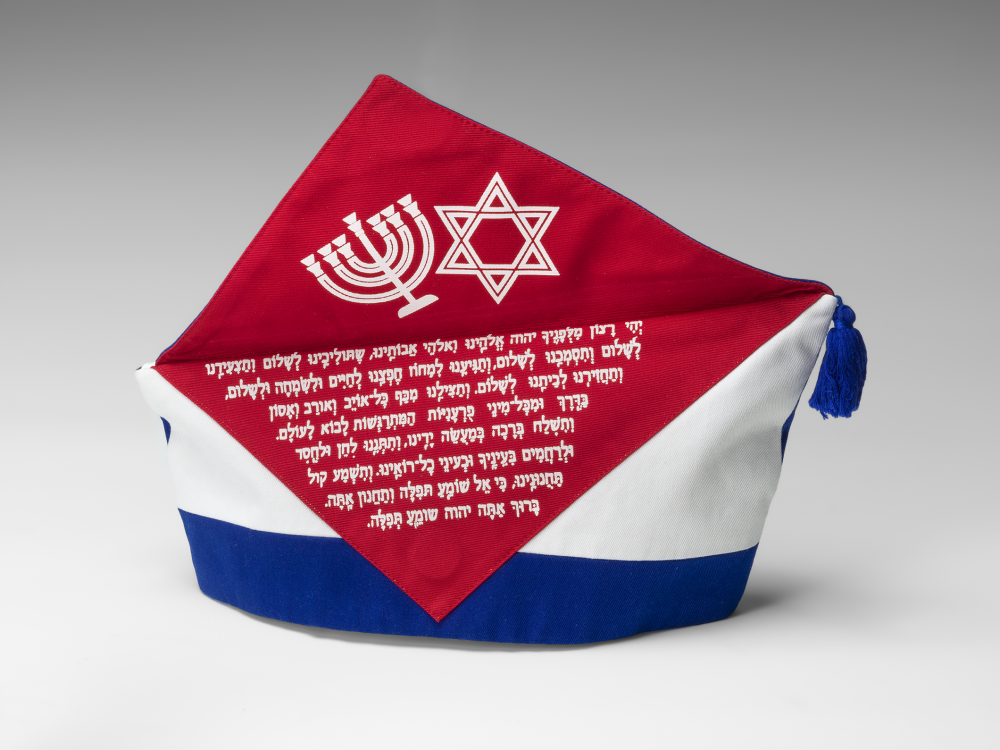
Krätzchen Carnival Cap (Kölsche Kippa Köpp Carnival Society); Jewish Museum Berlin, gift of Aaron Knappstein, photo: Roman März
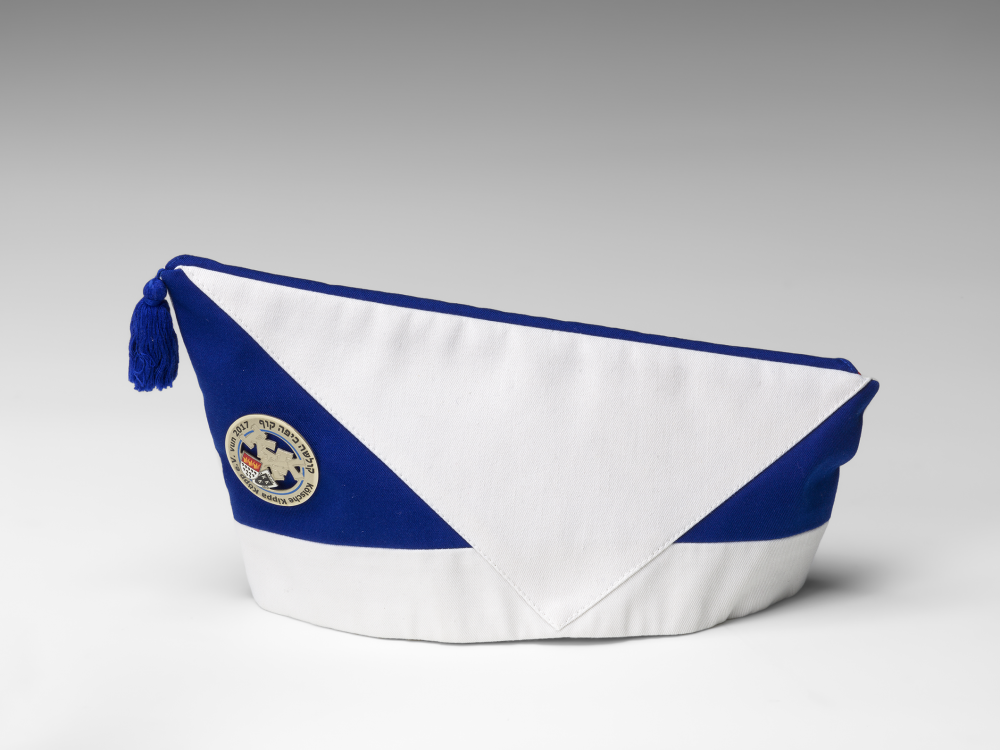
Krätzchen Carnival Cap (Kölsche Kippa Köpp Carnival Society); Jewish Museum Berlin, gift of Aaron Knappstein, photo: Roman März
In the center at the front of the Krätzchen, under a cord, is a silver badge with the club’s logo: three large Ks merging into one another. Below that is the Cologne coat of arms, as well as the coat of arms of the former Jewish carnival club Kleiner Kölner Klub (“Little Cologne Club”). Surrounding the three Ks and the coat of arms are the words “Kölsche Kippa Köpp Registered Association of 2017” and “Kölsche Kippa Köpp” – in Hebrew letters.
A narrow red border is visible on the left side. If you lift the cap to the side, a Star of David, a menorah, and the Tefilat ha-Derekh – the Traveler’s Prayer – are revealed. Jewish carnival revelers are on their feet a lot. While the logo is easily recognizable, the wearer decides whether they want to make the Jewish symbol visible.
Integration, Exclusion, and Jewish Visibility
KKK: With this abbreviation, the Kölsche Kippa Köpp deliberately refers to the Kleiner Kölner Klub, which was initially founded as a bowling club during the Weimar Republic, but soon became active as an established Jewish carnival club. Although the Kleiner Kölner Klub was the first Jewish carnival club in Cologne, numerous other carnival clubs also had Jewish members. Jewish memberships have been known since the early 19th century. When the National Socialists seized power, Jews were excluded from this local tradition. The founders of the Kleiner Kölner Klub managed to emigrate to Palestine and the USA. Many members were deported and murdered.
Even though the Kölsche Kippa Köpp follows the tradition of the Kleiner Kölner Klub, explicitly addressing Jewish themes and also bringing Carnival into the Jewish community, local traditions and Jewish self-understanding are not in conflict. As Knappstein outs it:
“The Kölsche Kippa Köpp is part of the Cologne Carnival family, and we celebrate carnival in this city like any other carnival society does. There’s no such thing as a ‘Jewish carnival,’ only Jews who celebrate carnival.”
Before the donor gifted us his Krätzchen for the collection, he wore it one last time in Yael Reuveny’s video installation Mesubin. Because this work is now part of our core exhibition, this carnival performer joins the polyphonic chorus of Jewish voices in Germany today.
Tamar Lewinsky, collections curator
Citation recommendation:
Tamar Lewinsky (2021), Collecting the present. Krätzchen Carnival Cap (Kölsche Kippa Köpp Carnival Society), gift of Aaron Knappstein, 2019.
URL: www.jmberlin.de/en/node/8203







